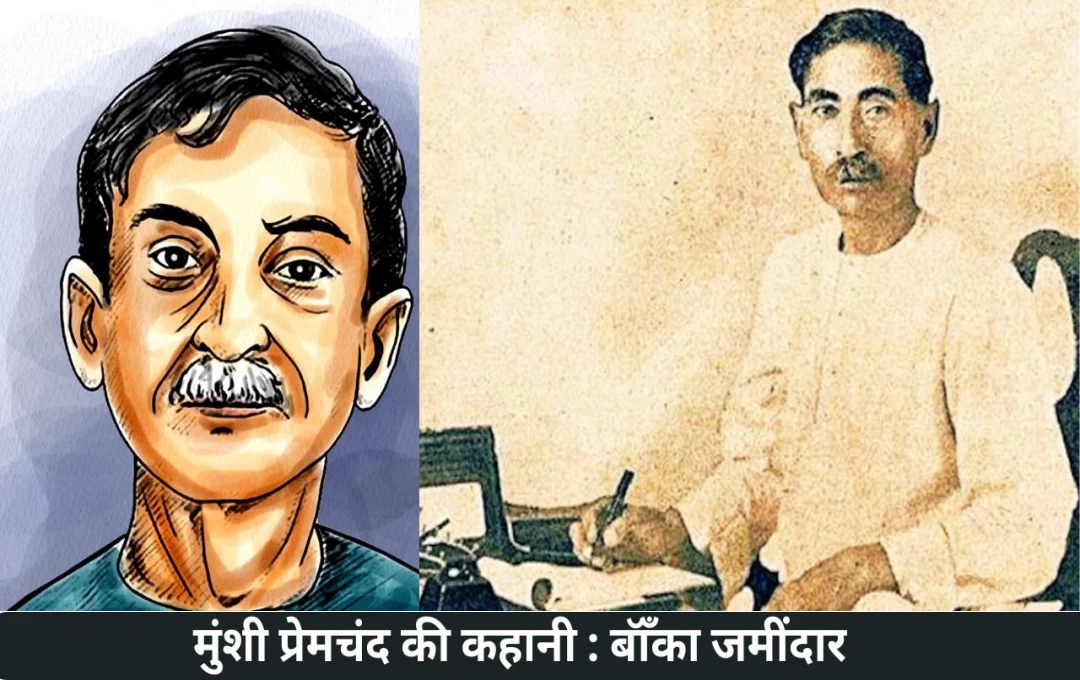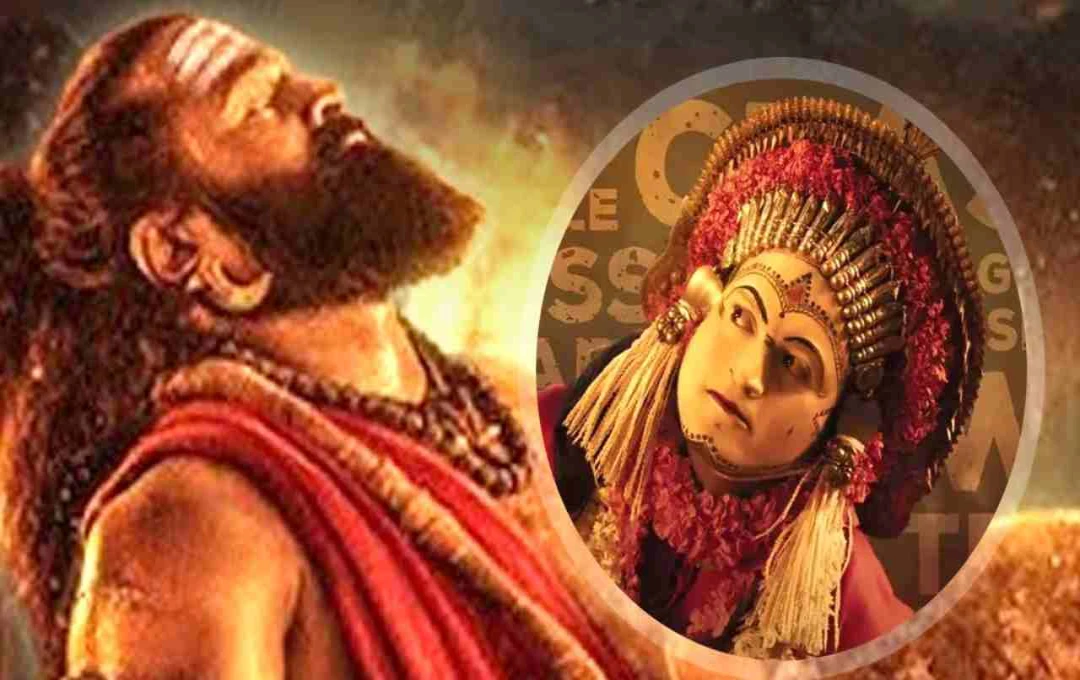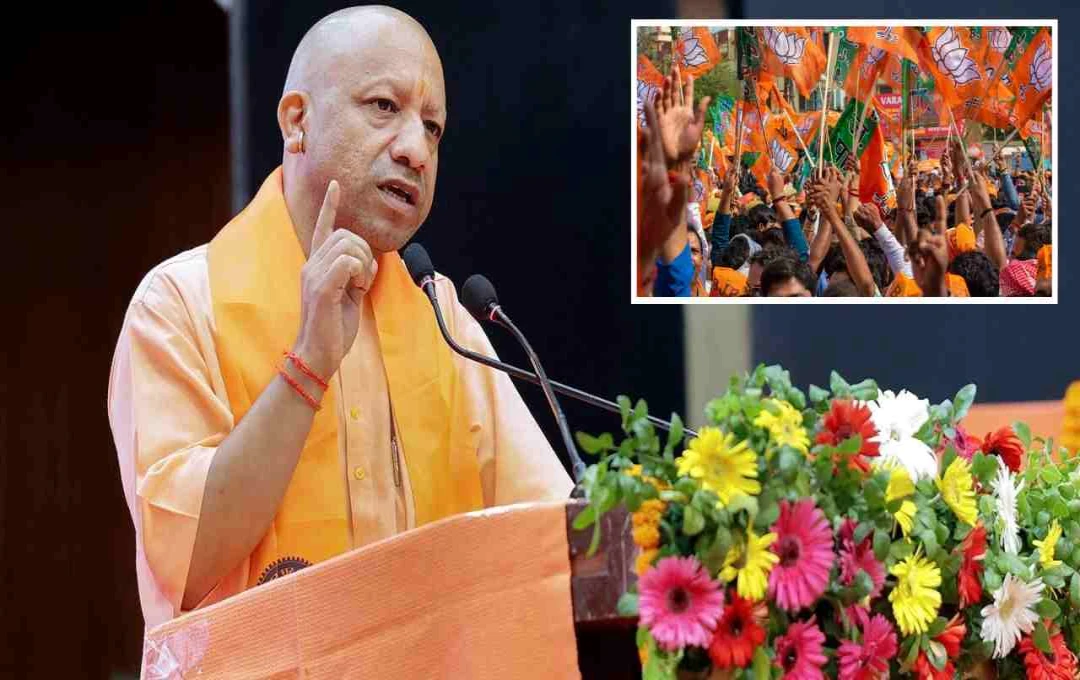Friends, our nation has for centuries been the birthplace and home of numerous great personalities brimming with virtues – sages, poets, writers, musicians, and many more. Thousands of works created by these great individuals are invaluable. Today's youth, in this digital age, seem to be losing touch with this rich heritage, drifting far from our precious treasure trove. subkuz.com consistently strives to bring you these invaluable treasures along with entertaining stories, news, and information from India and abroad. Presented here is one such invaluable and inspiring story by Munshi Premchand.
The Boisterous Zamindar
Thakur Pradyumn Singh was a renowned lawyer, famous throughout the city for his courage and audacity. His friends often remarked that his masculine prowess was most evident in the court's sessions. This was the reason that, despite rarely achieving success in any case, his clients' devotion remained unwavering. To doubt the fearless independence of those seated on the chair of justice might be considered a sin, yet city insiders openly claimed that when Thakur Sahib became adamant about a case, his altered demeanor and fiery expression could even sway justice itself. On more than one occasion, his tenacity and spirit had performed miracles where justice and law had failed. Furthermore, Thakur Sahib was a true connoisseur of masculine virtues.
If a client possessed wrestling skills, it wasn't necessary for them to pay for his services. Therefore, his chambers were always thronged with the city's wrestlers and bmen. This was his incredibly influential and practical legal finesse, something that even justice itself had to consider carefully. He valued pride, true pride, from the heart. The doorways of his unpretentious home were very high; there was no need to stoop; one could enter with head held high. It's a well-known story that once he refused to take up a case despite much pleading and persuasion. The client was a stubborn villager. Seeing his pleas fail, he resorted to force. The lawyer fell from his chair and embraced the angry villager.
There has always been an attraction between wealth and land. Besides ordinary gravity, the earth possesses a special force that always pulls wealth towards it. Interest, promissory notes, and trade are the intermediate stages of wealth; land is its ultimate destination. Thakur Pradyumn Singh's eyes had long been set on a very fertile estate. However, his bank account never allowed his ambitions to take flight. Once, the zamindar of that very estate was arrested in a murder case. He had merely kept a tenant standing in the scorching sun all day, following customary practices. But if the sun's heat, the tenant's weakness, or the intensity of thirst proved fatal, what was the zamindar's fault? It was the injustice of the city's lawyers that no one came forward to defend him, or perhaps the zamindar's impoverished state also played a role. In any case, after facing rejection everywhere, he sought refuge with Thakur Sahib. The case was extremely weak. The police had launched a full-scale attack, and the government had prepared the latest and most up-to-date legal documents to support them. Thakur Sahib, like experienced snake charmers, didn't insert his hand into a snake's hole, but on this occasion, he saw his desires faltering in the face of a dry legal battle. He reassured the zamindar, filed the power of attorney, and then pleaded the case with such dedication, fighting for his life, that he emerged victorious from the field. Public opinion attributed this victory not to his legal expertise but to his masculine qualities, for in those days, the lawyer was more involved in the exciting aspects of wrestling than in the discouraging complexities of precedents and sections. However, this doesn't seem believable. More knowledgeable people say that grenades of pomegranates and bullets of apples and grapes shattered the police's boisterous attack, ensuring that the field remained in the hands of our Thakur Sahib. The zamindar's life was saved.
Escaped from the jaws of death, he fell at his feet and said—Thakur Sahib, I am not worthy of serving you. God has given you so much, but Lord Krishna happily accepted the dry rice of poor Sudama. I offer you my small, desolate estate, a heirloom from my ancestors. It may not be worthy of you, but please accept it for my sake. I will never forget your kindness. The lawyer was moved. After refusing a few times like a detached ascetic, he accepted the offering. His heart's desire was fulfilled.
The people of this estate were extremely rebellious and quarrelsome, proud that no zamindar had ever been able to subdue them. But when they saw their reins passing into the hands of Pradyumn Singh, they forgot their defiance, watched the rider like an untamed horse, stood on their hind legs, neighed a little, and then bowed their heads. They understood that this was a b-hearted, firm-seated horseman.
It was the month of Ashadh. Farmers were searching from door to door, selling their jewelry and utensils to find bullocks. The old village women were like newlywed brides, and the starving potter was the bridegroom of the wedding party. The laborers had become the masters of the occasion. Leaky roofs were waiting for their merciful gaze. The fields covered with grass needed their loving hands. They settled whoever they wanted, and they displaced whoever they wanted. On the mango and jamun trees, mischievous boys raided around the clock. Old men, with bags hanging around their necks, were seen wandering around from midnight searching for leaks – a more interesting and enjoyable task than food and prayers, even in old age. The streams were boisterous, the rivers boundless, greenery and prosperity everywhere. During these days, Thakur Sahib arrived in the village like death, without prior notice. It was a grand wedding procession, with elephants and horses, and paraphernalia; a whole regiment of bmen. When the village saw this grand spectacle and pomp, their senses fled. The horses trampled the fields, and the bmen roamed the streets. In the evening, Thakur Sahib summoned his tenants and said in a loud voice—I hear you are rebellious, and you know my rebellious nature. Now it’s time for a clash of bricks and stones. Do you agree?
An old farmer, trembling like a banyan tree, replied—Sir, you are our king. Where will we go defying you?
Thakur Sahib, changing his demeanor, said—Then all of you submit three years' advance land revenue by tomorrow morning. And listen carefully, I don't know how to repeat orders, or I will have the plough run through the village and turn the houses into fields.
Chaos erupted throughout the village. Collecting three years' advance land revenue so quickly was impossible. The night was spent in this turmoil. There was still hope for the lightning-like effect of pleas and requests. When morning finally arrived, it arrived as a catastrophe. On one hand, the market of force, injustice, and oppression was hot; on the other, there was the sound of weeping eyes, cold sighs, and screams, with no one to hear them. Poor farmers, carrying their belongings, looked helplessly, with pleading eyes, their wives and children alongside, crying and wailing, leaving for an unknown land. By evening, the village was deserted.
This news spread quickly. People began to doubt Thakur Sahib's humanity. The village lay desolate. Who would populate it? Whose children would play in its streets? Whose women would fetch water from the wells? Travelers on the road saw this scene of devastation and lamented. It is unknown what the poor, who earned their living with hard work and walked with their heads held high, went through. Alas, they who ate the fruits of their labor and walked with their heads held high, were now enslaved.
Thus passed a whole year. Then the village's fortune changed. The land was fertile; the houses remained. Slowly, the story of oppression faded. The covetous eyes of the rebellious farmers fell upon it. By chance, the zamindar is cruel, merciless, and strict; we will appease him. What is the talk of three years' advance land revenue? We will please him as much as he wants. We will consider his abuses as blessings; we will place his shoes on our heads and eyes. He is the king; we are his servants. How difficult it is to maintain self-respect in the struggle and fight of life! When the second Ashadh arrived, the village was once again a garden. Children again started making houses at their doorsteps; the loud songs of the men were heard in the fields, and the sweet songs of the women were heard at the mills. The enchanting scenes of life reappeared.
A year passed. When the second harvest of Rabi arrived, seeing the golden ears of corn waving in the fields, the hearts of the farmers started to dance. The fallow land had yielded gold in a year. The women were happy that they would now get new jewelry; the men were happy that they would buy good bullocks; and the Daroga's happiness knew no bounds. When Thakur Sahib heard this good news, he set out to visit the countryside. The same pomp, the same regiment of bmen, the same army of thugs! The villagers began to make preparations for his reception. A whole flock of fat goats was tied at the entrance of the meeting place; heaps of wood were piled up; and milk pots were filled. When Thakur Sahib reached the village boundary, one hundred men were standing with folded hands to welcome him. But the first thing requested was lemonade and ice. The tenants were dumbfounded. A bottle of water could have sold for its weight in gold at that time. But the poor villagers did not know the ways of the rich. Like criminals, they stood stunned with bowed heads. There was shame and embarrassment on their faces, fear and palpitations in their hearts. God! Things have gone wrong, now you take care of it.
Without the coolness of the ice, Thakur Sahib's thirst grew even ber, his anger flared up, and he thundered—I am not a devil to quench my thirst with goat's blood. I need cool ice, and this thirst will be quenched only by your and your wives' tears. Ungrateful wretches, I gave you land, houses, and status, and in return, you offer me nothing but stagnant water! You are not worthy of any concession. By tomorrow evening, I do not want to see the face of any man in this village; otherwise, there will be a catastrophe. You know I don't have the habit of repeating my orders. The night is yours; take whatever you can. But by evening, I don't want to see anyone's unfortunate face. This crying and screaming is useless. My heart is stone and my liver is iron; I am not moved by tears.
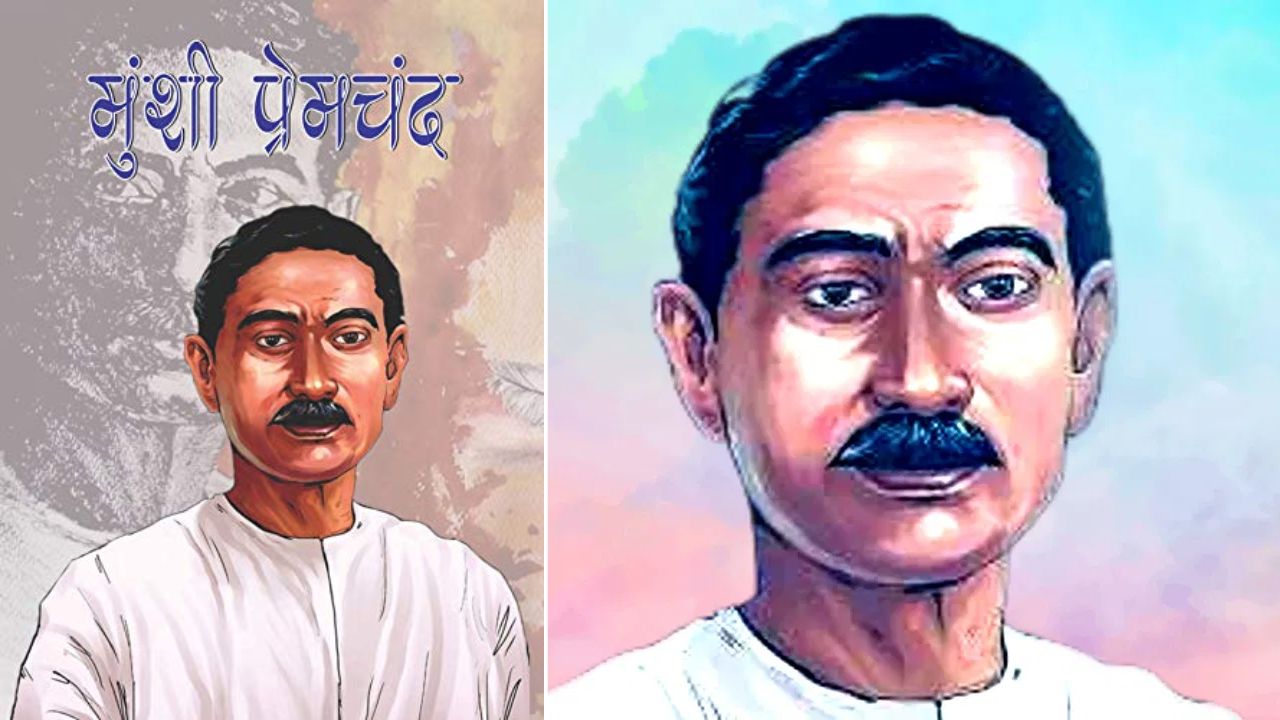
And so it happened. By the second night, there was not even one person left in the village to light a lamp. The flourishing village became a haunted place.
For many days, this incident remained a treasure trove of interest for the gossiping storytellers in the surrounding areas. A gentleman also wrote about it. Poor Thakur Sahib became so infamous that it became difficult for him to leave the house. He tried hard to repopulate the village, but who had the courage to set foot in this dark city where the punishment for being overweight was hanging? Some laborers came to gamble with fate, but they could not stay for more than a few months. A deserted village is a lost reputation, very difficult to regain. Finally, when nothing worked, Thakur Sahib was forced to publicly announce the remission of the land revenue, but he lost the remaining credibility of his reign. Thus, after three years, a caravan of Banjaras arrived one day. Evening had fallen, and a wave of darkness was rising from the east. The Banjaras saw that the entire village was deserted, where vultures and jackals lived in the houses of men. They could not understand the mystery. There are houses, fertile land, fields waving with greenery, but no humans! As there was no other village nearby, they made their camp there. When morning came, the bells around the necks of the bullocks began to play their silver music again, and as the caravan moved away from the village, a shepherd told them the long story of oppression. Traveling all over the world had made them accustomed to hardships. They consulted among themselves, and a decision was made. They went to Thakur Sahib's doorstep and offered their services. The village was repopulated.
These Banjaras were extremely brave people, with iron-like courage and determination; with their arrival, the reign of Lakshmi (Goddess of wealth) began in the village. Again, clouds of smoke rose from the houses; the axes again wore the sheets of smoke and steam; lamps burned again on the Tulsi's platform. At night, the songs of young people with colorful temperament began to be heard. The herds of cattle appeared again in the pastures, and the faint and sweet sound of a shepherd's flute sitting under a tree began to create a magical charm in this natural scene immersed in pain and effect.
It was the month of Bhadrapada. The red and white smoothness of the cotton flowers, the blossoming of sesame, and the attractive yellowness of flax showed the splendor of their forms. The beauty of fruits and flowers was also visible on the farmers' threshing floors and thatched roofs. Light sprinkles of water were decorating the beauty of nature. Just as the hearts of ascetics are filled with the light of truth, so were the oceans and ponds filled with clear and pure water. Perhaps King Indra was descending from the cool heights of Kailash to the plains; therefore, nature had opened its treasure of beauty, achievements, and hopes. The lawyer was also tempted by an outing. As always, he arrived in the village with his aristocratic pomp and show. He saw that the blessings of satisfaction and peace were clearly visible everywhere.
The villagers, hearing the news of his arrival, offered their salutations. The lawyer saw them dressed in fine clothes, walking with self-respect. He greeted them with a broad smile, inquired about the condition of the crops. Old Hardas, in a tone that exuded full responsibility and the dignity of a chieftain, replied—By the blessings of your feet, all is well. There is no trouble; we eat your bounty and sing your praises. Our king and ruler is you, and our lives are at your disposal.
Thakur Sahib, changing his demeanor, said—I am not accustomed to hearing flattery.
A frown appeared on old Hardas's forehead; his pride was hurt. He said—I am also not used to flattering.
Thakur Sahib retorted—You don't have the manners to talk to the rich. Like your strength, your intellect has also become a victim of old age.
Hardas looked at his companions. Their eyes were wide with anger, and their foreheads were furrowed with the coldness of patience. He said—We are your subjects, but we cherish our honor, and even if you, the zamindar, give your head, we cannot give our honor.
Many of Hardas's rebellious companions supported him in a loud voice—Honor is behind our lives.
Thakur Sahib's anger flared up, his face turned red, and he said loudly—Speak carefully, or you will be expelled in the same way you came with bags around your necks. I am Pradyumn Singh, who has crushed hundreds like you right here. Saying this, he called Arjun Singh, the leader of his regiment, and said—Thakur, these ants have now grown wings. By tomorrow evening, clear my village of these people.
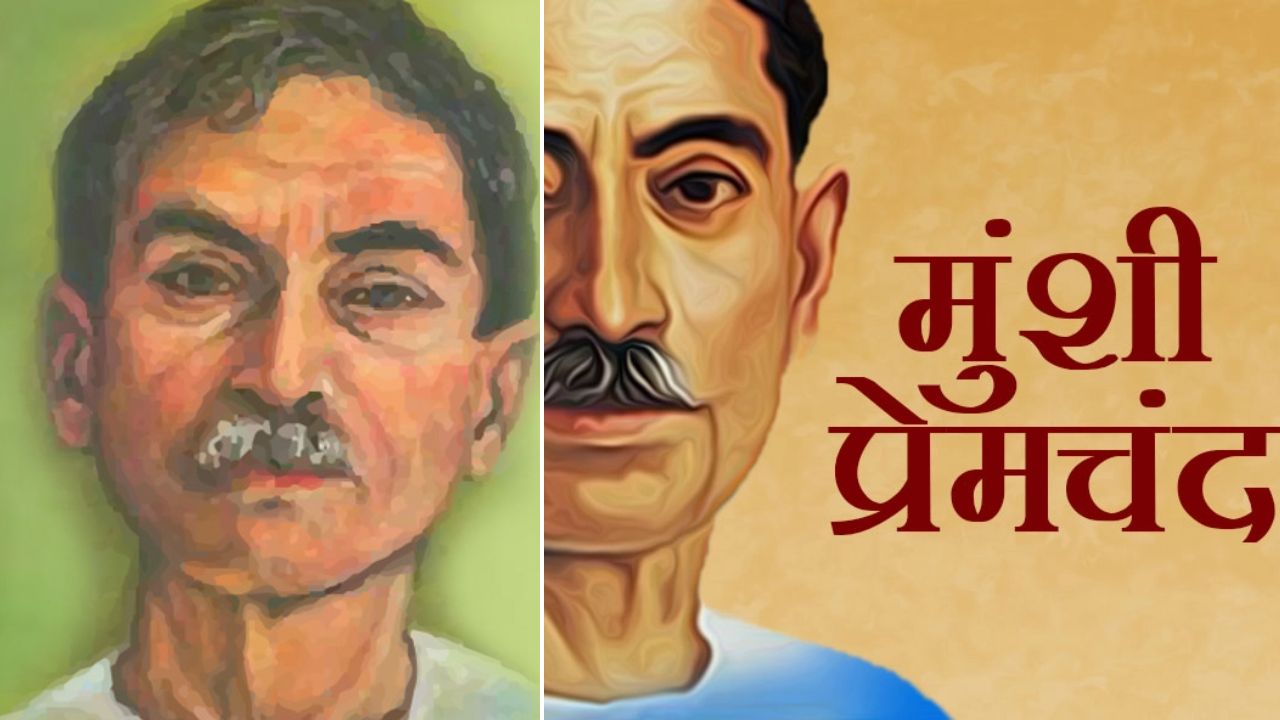
Hardas stood up. Anger was now sparks emanating from his eyes. He said—We did not settle this village to leave it. As long as we live, we will live in this village, be born here, and die here. You are a great man, and the understanding of the great is also great. We are stubborn villagers. Do not unnecessarily pursue the lives of the poor. There will be bloodshed. But if this is what you want, then we challenge your soldiers; whenever you want, unleash your hearts' desires.
Saying this, he saluted Thakur Sahib and left. His companions walked proudly. Arjun Singh observed their demeanor. He understood that these were iron-hearted people, but he was the leader of the bmen; he had some pride in his name. The next day in the evening, when the clash between night and day was taking place, these two groups confronted each other. Then there was such a fierce fight that the earth trembled. The tongues showed what was inside the mouths, so much so that the sun hid in the west out of fear. Then the sticks raised their heads, but before they could become worthy of the doctor's prayers and thanks, Arjun Singh acted wisely. However, some of his men had already drunk jaggery and turmeric.
Seeing the bad condition of his army, some with torn clothes, some with dust on their bodies, some gasping for breath (very little blood was visible because it is a precious thing and was saved from the beating of sticks), Thakur Sahib patted Arjun Singh on the back and praised his bravery and valor. At night, there was such a rain of laddoos and sweets before them that all the dust and debris was washed away. In the morning, this regiment took the path of their cold homes and swore that they would never again look towards this village.
Then Thakur Sahib summoned the villagers to the meeting place. It was just a matter of his gesture. Everyone gathered. Authority and rule, if they descend from the throne of pride, can make enemies into friends. When all the people arrived, Thakur Sahib embraced them one by one and said—I am very grateful to God that I have found the men I was looking for for the village. You know that this village was destroyed many times and settled many times. The reason for this was that those people did not meet my standards. I was not their enemy, but my heartfelt wish was that those who face oppression like men, who protect their rights and privileges like men, who are not slaves to authority, who do not tremble with fear like children at the sight of the sharp gaze of power and authority, should settle in this village. I am confident that after much loss, shame, and infamy, my desires have been fulfilled. I am confident that you will successfully face adverse winds and rising waves. I withdraw my hand from this village today. From today, it is your property. You are its zamindar and owner. My only prayer to God is that you prosper, flourish, and be prosperous.
These words worked magic on their hearts. People, intoxicated with devotion to their master, clung to Thakur Sahib's feet and said—We will not be separated from your feet while we live. Where will we find a benefactor and ruler like you? A very painful and impactful scene of warriors' devotion, sympathy, loyalty, and gratitude unfolded before their eyes. But Thakur Sahib remained firm in his generous decision. More than fifty years have passed, but the heirs of those Banjaras are still the maafidars (land revenue collectors) of Mauja Sahasganj. Women still worship and make offerings to Thakur Pradyumn Singh, and although many young men of this estate have now reached the heights of wealth and power, they still take pride in the name of the stubborn and proud Hardas, and the celebrations are still held in memory of that blessed victory on the day of Bhadrapada Sukladi Ekadashi.
Keep reading such inspiring and informative stories on subkuz.com.
